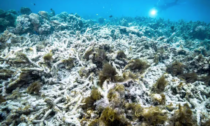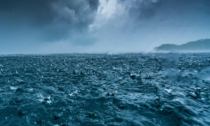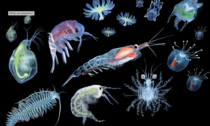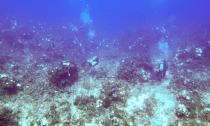
Above-average temperatures for weeks have had a devastating impact on the Great Barrier Reef, as scientists confirmed at least two-thirds of the reef had again undergone mass bleaching. For the fifth time in just eight years, mass coral bleaching is turning hundreds of sites on the Great Barrier Reef white.
Coral bleaching occurs when higher than average ocean temperatures cause the coral to experience heat stress, causing the coral to secrete algae that provide many nutrients and color. The Great Barrier Reef Marine Park Authority said aerial surveys of two-thirds of the reef had confirmed widespread bleaching.
Read More



















Social Profiles